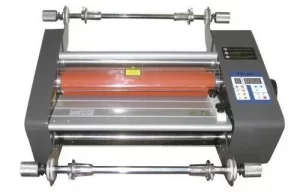Some experts firstly believed that fixed-linebroadband internet was formerly on its way out of the request because of the rise of mobile and wireless results. Still, the fixed-linebroadband assiduity seems to be going strong, thanks to mobile service providers’ adding their reliance on fixed- line networks to reduce costs by routing the constantly adding mobile business through fixed connections Although fixed- line results remain applicable for businesses, it does n’t mean that all businesses can get access to one. This is especially true for businesses in areas where the installation of structure necessary for fixed- lines solutionsis either too expensive or simply not doable. This is where fixed wireless backhaul deployment comes into play.
Fixed Wireless in a Nutshell
Fixed wireless operation works in a analogous manner to fixed- line connection in that it joins separate fixed locales, for instancebetween two structures or between a last afar system and several remote locales. Still, rather of having a physical wired connection, a radio link between the locales is created Fixed wireless backhaul systems offers plenty of big advantages over fixed-line networks, some of which make it the preferred option for companies of all sizes.
- Lower Overheads – Because there is no need to set up posts or lay down up to several miles of cables, fixed wireless backhaul deployment is considered a lot cheaper than its fixed-line counterpart. Also, the antenna, radio, and a power source necessary for deployment are readily built into one unit. Cost-effectiveness is magnified in connections spanning several miles, since the farther the connection, the more resources would be needed to achieve a similar fixed-line connection.
- FasterDeployment – Setting up fixed-line equipment can take weeks or even months, especially for businesses in remote areas or those that have multiple locations that are far in between. On the other hand, setting up wireless backhaul equipment usually takes just a few days, even if the backhaul link spans several miles.
- Better Network Security – The fewer and the more compact the equipment, the better it is to keep them secure. Fixed wireless backhaul equipment are often protected by tamper-evident seals and are easy to put under constant surveillance using only a few cameras. On the software side of things, it’s standard for backhaul equipment to be protected by encryption, user-based limited access, password protection, and centralized authentication among other security measures.
- Lower Downtimes – Because of the cost and speed of deployment of fixed wireless backhaul, it’s relatively easy to establish backup links to make sure critical services that require constant connectivity do not get affected by sudden connection failures or poor latency of the main backhaul link.
- Network Flexibility – One of the best things about fixed wireless backhaul is that the data can easily be translated into ethernet, fiber, or any other type of backhaul, which means there won’t be any problem linking up with another network using a different type of backhaul. Fixed wireless backhaul also allows quick changes to the network simply by adding extra equipment and adjusting a few network settings, making it relatively easy to scale up in case a business needs to expand. Even the effective range of each link can be changed by installing a better satellite dish.
While connectivity options such as fiber, mobile, and satellite backhauls are well-known and already considered a part of daily life, the cost-efficiency, security, and rapid deployment of fixed wireless backhaul are enough reasons to believe that wireless backhaul solutions will always be relevant to businesses for many years to come.




